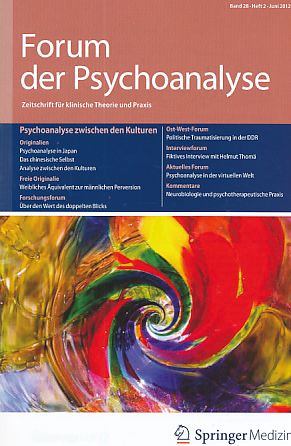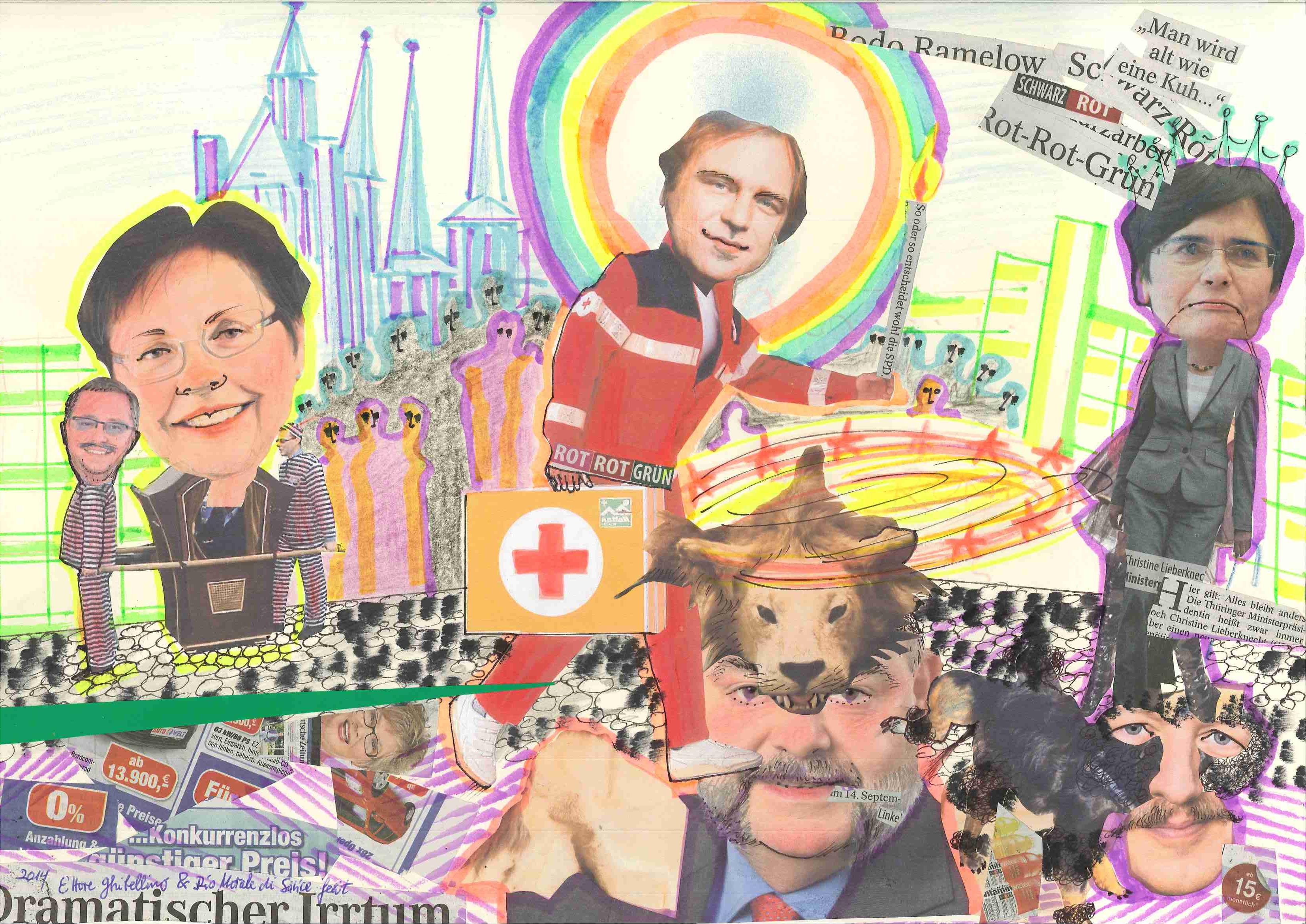Forum der Psychoanalyse
September 19, 2014 von admin | Kommentare deaktiviert für Forum der Psychoanalyse
 Forum der Psychoanalyse, Bd. 30, Heft 1, März 2014
Forum der Psychoanalyse, Bd. 30, Heft 1, März 2014
Sublimierung als Flucht aus Bedrängnis. Zu Goethes lebenslanger Liebe
Sublimation as flight from troubles. On Goethe’s lifelong love
Dr. Carl Nedelmann
Scroll down for English version.
Zusammenfassung
Bei der Sublimierung wird der Wunsch, der alles in Bewegung setzt, auf andere Objekte und Ziele verschoben. Der Trieb bleibt dabei weitgehend unberührt und wird kaum in seiner Intensität vermindert. Wichtig zum Verständnis ist, den Sexualtrieb in der begrifflichen Weite des Eros zu sehen, wie Platon ihn in seiner Sublimierungslehre im „Gastmahl“ beschrieben hat.
Sublimierung dient der Abwehr. Sie ermöglicht Flucht aus Bedrängnis. Das gelingt am besten, wenn die Liebe zu einem anderen Objekt neue Möglichkeiten der Befriedigung schafft und uns dadurch zu Gewinnern macht.
Als Beispiel dient Goethes Liebeslyrik. Neue Untersuchungen legen nahe, nicht Charlotte v. Stein, sondern die Herzogin Anna Amalia als Goethes Geliebte zu sehen. Bedrängnis kam von dem damals herrschenden Absolutismus. Es war eine verbotene Liebe. Sie musste geheim bleiben. In seinen Gedichten jedoch fand Goethe Wege, die Liebe, die er verbergen musste, zu bekennen.
Die neue Sicht bewirkt einen neuen Zugang. Goethes Liebeslyrik erscheint verständlicher, lebendiger und der Wahrheit näher. Sie erzählt vom höchsten Glück und vom tiefsten Schmerz in Gedichten, die zum Besten in der deutschen Literatur gehören. Sie stellen ein wunderbares Beispiel dar, was Sublimierung zu leisten vermag.
Abstract
In sublimation the desire which sets everything in motion is shifted to other objects and targets. The urge remains largely untouched thereby and is barely reduced in intensity. To appreciate this it is important to view the sexual drive in the conceptual scope of Eros, as Plato described in his teaching on sublimation in “The Symposium” (banquet).
Sublimation serves as a means of defence and allows flight from troubles. This is most successful when the love of another object achieves new possibilities for gratification and therefore makes us into winners.
Goethe’s love poems serve as an example. New investigations suggest that Goethe’s lover was not Charlotte v. Stein but Duchess Anna Amalia. Troubles came from the absolutism prevailing at that time. It was a forbidden love. It had to remain secret; however, in his poems Goethe found ways to acknowledge the love which he was forced to conceal.
The new perspective achieves a new access. Goethe’s love poems seem more comprehensible, more lifelike and closer to the truth. The lyrics tell of greatest happiness and of deepest pain in poems which belong to the best in German literature. They represent a wonderful example of what sublimation can achieve.
Erweiterte Fassung von Vorträgen auf der 7. Herbsttagung der Anna Amalia und Goethe Akademie zu Weimar am 19. Oktober 2013 und auf dem Symposion „Persönliche Stile in Psychoanalysen. 30 Jahre Forum“ der International University Berlin am 1. und 2. November 2013.
Volltext
 Abstract
Abstract
In sublimation the desire which sets everything in motion is shifted to other objects and targets. The urge remains largely untouched thereby and is barely reduced in intensity. To appreciate this it is important to view the sexual drive in the conceptual scope of Eros, as Plato described in his teaching on sublimation in “The Symposium” (banquet).
Sublimation serves as a means of defence and allows flight from troubles. This is most successful when the love of another object achieves new possibilities for gratification and therefore makes us into winners.
Goethe’s love poems serve as an example. New investigations suggest that Goethe’s lover was not Charlotte v. Stein but Duchess Anna Amalia. Troubles came from the absolutism prevailing at that time. It was a forbidden love. It had to remain secret; however, in his poems Goethe found ways to acknowledge the love which he was forced to conceal.
The new perspective achieves a new access. Goethe’s love poems seem more comprehensible, more lifelike and closer to the truth. The lyrics tell of greatest happiness and of deepest pain in poems which belong to the best in German literature. They represent a wonderful example of what sublimation can achieve.

